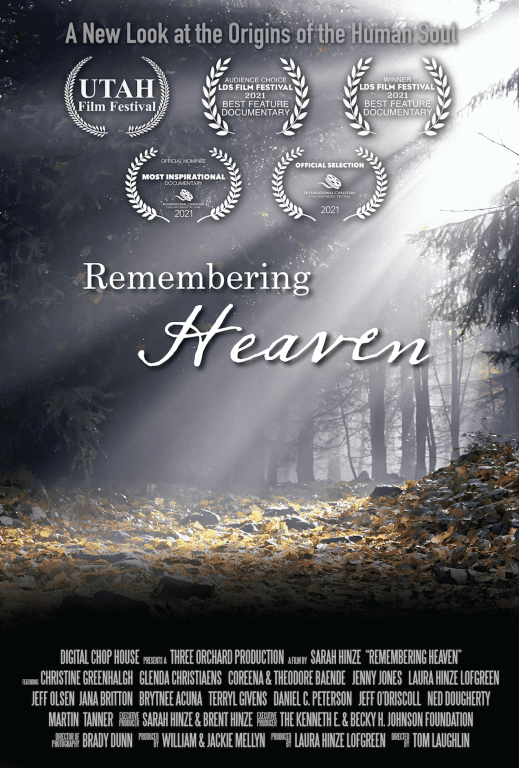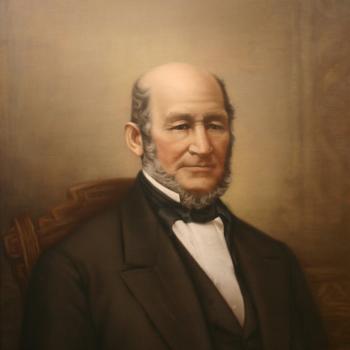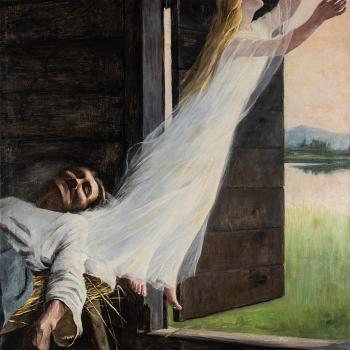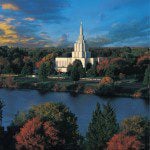
***
First, though:
My inaugural installment of what is intended to be a regular column for Meridian Magazine has now appeared:
“But what do the witnesses’ testimonies prove?”
***
And, speaking of the witnesses to the Book of Mormon:
The Interpreter Foundation’s first theatrical film, Witnesses, will open to the public — in Utah movie houses, anyway, and perhaps somewhat beyond (I’ll have more information about that shortly, I believe) — on Friday, 4 June 2021. That’s less than two months away.
Actually, it will open at 7 PM on Thursday, 3 June 2021. (That’s evidently the way things are done for cinematic “opening weekends.”)
I hope that you’re planning to see Witnesses.
If you are, please mark your calendars for Thursday, 3 June, and/or Friday, 4 June, and/or Saturday, 5 June. Bring family. Bring friends. Heck, bring your ward’s Young Men and Young Women. We’re hoping for a solid opening weekend that will lend added market credibility to the film and, thus, earn it more screens — including screens in theaters outside of Utah and beyond the Wasatch Front.
The formal premiere for Witnesses is slated for Wednesday, 2 June 2021. The theater in which we were intending to hold the premiere is undergoing major renovations, but we’ve secured another very good venue for the event and are moving forward with plans. The premiere will focus on donors to the film and on media representatives, but there may still be seating available for the general public. I’ll know more as we draw closer to the date.
***
Remembering Heaven has also been accepted into the International Christian Film Festival (https://www.internationalcff.org/) which will be held in Orlando, Florida, on 22-24 May 2021.
The folks behind Remembering Heaven are using the hashtag #rememberingheaven to help others find out more about the film on social media and FaceBook.
***
With Remembering Heaven in mind, I offer a few passages from toward the end of Bruce Greyson, After: A Doctor Explores What Near-Death Experiences Reveal about Life and Beyond (New York: St. Martin’s Essentials, 2021). You will recall that Dr. Greyson is Professor Emeritus of Psychiatry and Neurobehavioral Sciences at the University of Virginia School of Medicine. Prior to joining the faculty at Virginia, he taught at the medical schools of the University of Michigan and the University of Connecticut, and he is a Distinguished Life Fellow of the American Psychiatric Association.
The first comes from “Edith,” who recounts what happened to her when, at age thirty-eight , her stomach ulcers ruptured. She was in horrible pain.
The next thing I became aware of was that I was in a new environment. I was suddenly not in the bed in the hospital with all the medical paraphernalia restricting my anatomy. But I could see the entire room, complete with a delicate cobweb up in a corner on the ceiling and some cracked plaster over the window. I felt not a twinge of apprehension or fear attached to this unusual situation. I was thoroughly enjoying this whole experience. As I looked around and scrutinized my body from on high, I became aware of an incredible light. This was not your everyday beam of sunlight, or a hundred-watt lightbulb shining forth, or a roaring fire, or a host of candles. It was not a celestial explosion in the midnight sky. It was radiant, ‘in sparkling raiment bright.’ It was warm. It possessed unearthly peace and radiant splendor. Nothing on earth has its color. There are not words to describe the depth of its visionary beauty. This is a place of total love and a place where ultimate security exists, forever. . . .
I looked down at the body in the in the bed, with all its artificial appendages; all the more I wanted to stay where I was. As I watched, I began to see my life before me, instantly, on a huge television screen and in living three-dimensional color. It was all there — not a detail was missing — even things I had not thought of for years. (198-199)
The idea that our minds — our thoughts, feelings, hopes, fears — are produced solely by our physical brains is not a scientific fact. It is a philosophical theory proposed to explain scientific facts. (209)
Those paradoxes suggest that we need a different model of how minds and brains interact. They suggest that the physical brain may act like a cell phone, receiving thoughts and feelings from the nonphysical mind and converting them into electrical and chemical signals that the body can understand and use. . . .
We may eventually come up with another explanation, but until then, minds and brains as separate things, with brains acting to filter our thoughts and feelings, seems to be the most plausible working model. (220)
NDEs raise questions about the continuation of consciousness after death. If it is true that minds can function in extreme circumstances without physical brains, then it may be possible that minds can continue to exist after the death of the brain. An answer to what happens after death may be beyond today’s scientific methods — or it may just be beyond our scientific imagination. But the scientific answer — if it ever comes — will likely be through indirect evidence, like the trail of bubbles subatomic particles leave in a bubble chamber. I don’t know whether some kind of continued consciousness after death is the best explanation for NDEs in which experiencers see deceased loved ones no one knew had died. But I don’t have any alternative explanation for the evidence. We may eventually come up with another explanation, but until then, some form of continued consciousness after death seems to be the most plausible working model. (221)
















